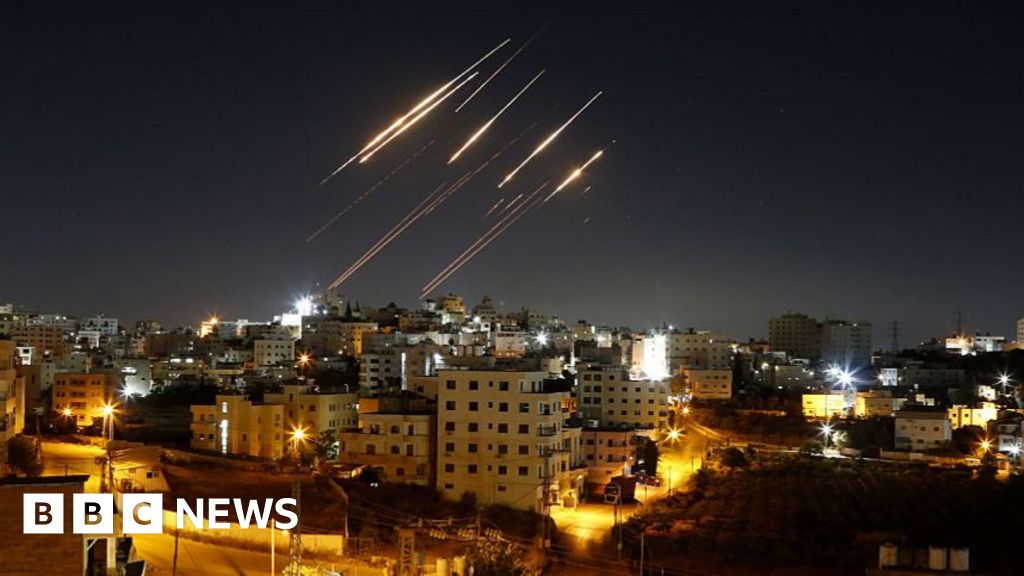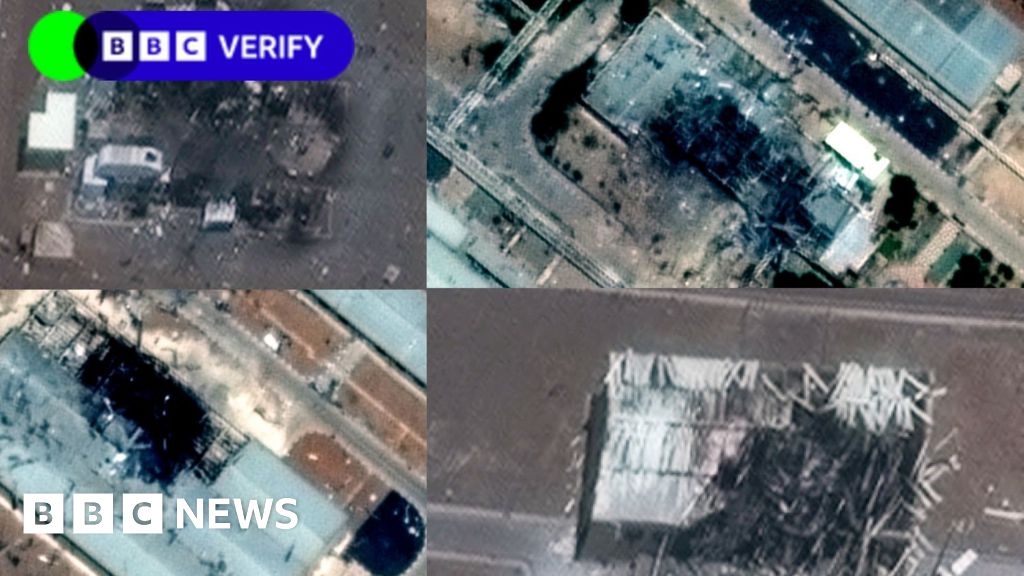ARTICLE AD BOX
Watch: ''People have swapped their pens and keyboards for guns''
The EU is taking the unprecedented step of sending arms to Ukraine following Russia's invasion.
Speaking at a news conference, European Commission President Ursula von der Leyen said the move marked a "watershed moment".
The EU is also closing its airspace to Russian planes and banning Russian state media outlets.
"We are shutting down EU airspace for Russian-owned, Russian-registered or Russian-controlled aircraft," Ms von der Leyen said.
All such planes, including the private jets of oligarchs, will now be unable to land in, take off from or fly over any EU nation.
Russian planes have also been banned from UK airspace.
The EU ban on state-owned news outlets will affect news agency Sputnik and the TV network Russia Today, widely seen as a mouthpiece for the Kremlin. "We are developing tools to ban their toxic and harmful disinformation in Europe," Ms von der Leyen said.
EU agrees to let in fleeing Ukrainians
EU countries will also fast-track Ukrainian refugees and set aside the usual bureaucracy.
The move was announced by the German interior minister, who said member states had agreed unanimously to admit refugees for up to three years without asking them to apply for asylum first.
Tens of thousands of Ukrainians have been displaced by the Russian attack on their country and many are seeking refuge in the EU.
Putin puts Russian nuclear forces on high alert
Vladimir Putin has ordered Russia's military to put its deterrence forces, which include nuclear weapons, on "special alert".
He told defence chiefs it was because of "aggressive statements" by the West, amid widespread condemnation of his invasion of Ukraine.
The announcement does not mean Russia intends to use the weapons.
The US immediately condemned his decision, calling it an "unacceptable escalation".
Image source, Reuters
Image caption,Mr Putin described Western economic sanctions against his country as illegal
Last week, Mr Putin had warned that "whoever tries to hinder us" in Ukraine would see consequences "you have never seen in your history".
Those words were widely interpreted as signalling a threat to use nuclear weapons if the West stood in his way.
Ukrainian forces repel attack on Kharkiv
Ukrainian forces say they have repelled an attack on the country's second city, Kharkiv, after fierce clashes with Russian forces.
Regional governor Oleh Synehubov said the city was now rid of Russian troops after street-to-street fighting. The BBC has not corroborated this, and the situation on the ground remains tense.
WATCH: Ukrainian troops street fighting in Kharkiv
Thousands spent the night in basements and shelters, with heavy shelling described by one resident as "something like Star Wars above your head".
"The wave of the blast was so strong that my ears popped," another said.
Daria Samoilyk, who with others has been forced to hide in the basement of her apartment building, told the BBC she had barely slept for three days.
"It's maximum one, two hours a night. There's shooting all day long and all night long, without any pauses."
She said the fighting had left parts of the city badly damaged.
"I have lots of friends who lost their homes yesterday.
"I'm not sure if I feel safe, because a missile can fall anywhere and destroy any building. It's like roulette."
Germany ups defence spending
The war in Ukraine has prompted Germany to pledge a massive hike in defence spending, in a major change in policy.
During an emergency parliamentary session on Ukraine on Sunday, Chancellor Olaf Scholz announced an additional $113bn (£84bn) for the German army.
Image source, Reuters
Image caption,Berlin police estimate more than 100,000 people attended an anti-war demonstration in the German capital on Sunday
There was an audible ripple of shock in parliament. Some MPs clapped, some booed, others looked stunned.
Undeterred, Mr Scholz went on to announce drastic measures that would have been unthinkable a week ago, including a constitutional commitment to Nato's military spending target of 2% of GDP - and he confirmed that Germany would be sending weapons directly to Ukraine.
Within a few days, Vladimir Putin has managed to do what Nato allies have spent years trying to achieve: a massive increase of military spending in Germany.
The full extent of casualties in Ukraine is very hard to confirm. The country's human rights commissioner says 210 civilians have been killed.
The Ukrainian health ministry has said 352 civilians, including 14 children, have died so far.
The United Nations has recorded 64 confirmed civilian deaths and many more wounded, and says it expects the true number to be much higher.
Military deaths are also extremely hard to verify. The UN said by Saturday at least 134 Ukrainian military had been killed.
Russia censors details of its casualties, and has not released figures. Its defence ministry conceded on Sunday that "there have been killed and wounded among the Russian military" - but claimed the losses were "several times less than the number of exterminated nationalists".
Ukraine claims 4,300 Russian servicemen have so far died.
Sanctions hit Russia's central bank
Russia's central bank has issued an appeal for calm amid fears that new financial sanctions could spark a run on its banks.
It said it "has the necessary resources and tools to maintain financial stability and ensure the operational continuity of the financial sector".
Image source, Getty Images
The EU, the US, the UK and Canada have announced that the assets of Russia's central bank will be frozen.
Some Russian banks will also be excluded from the Swift payment system.
A run on Russian banks would see too many people trying to withdraw money. On Friday, Russia's central bank was forced to increase the amount of money it supplies to ATMs after demand for cash reached the highest level since March 2020.

 3 years ago
31
3 years ago
31








 English (US) ·
English (US) ·